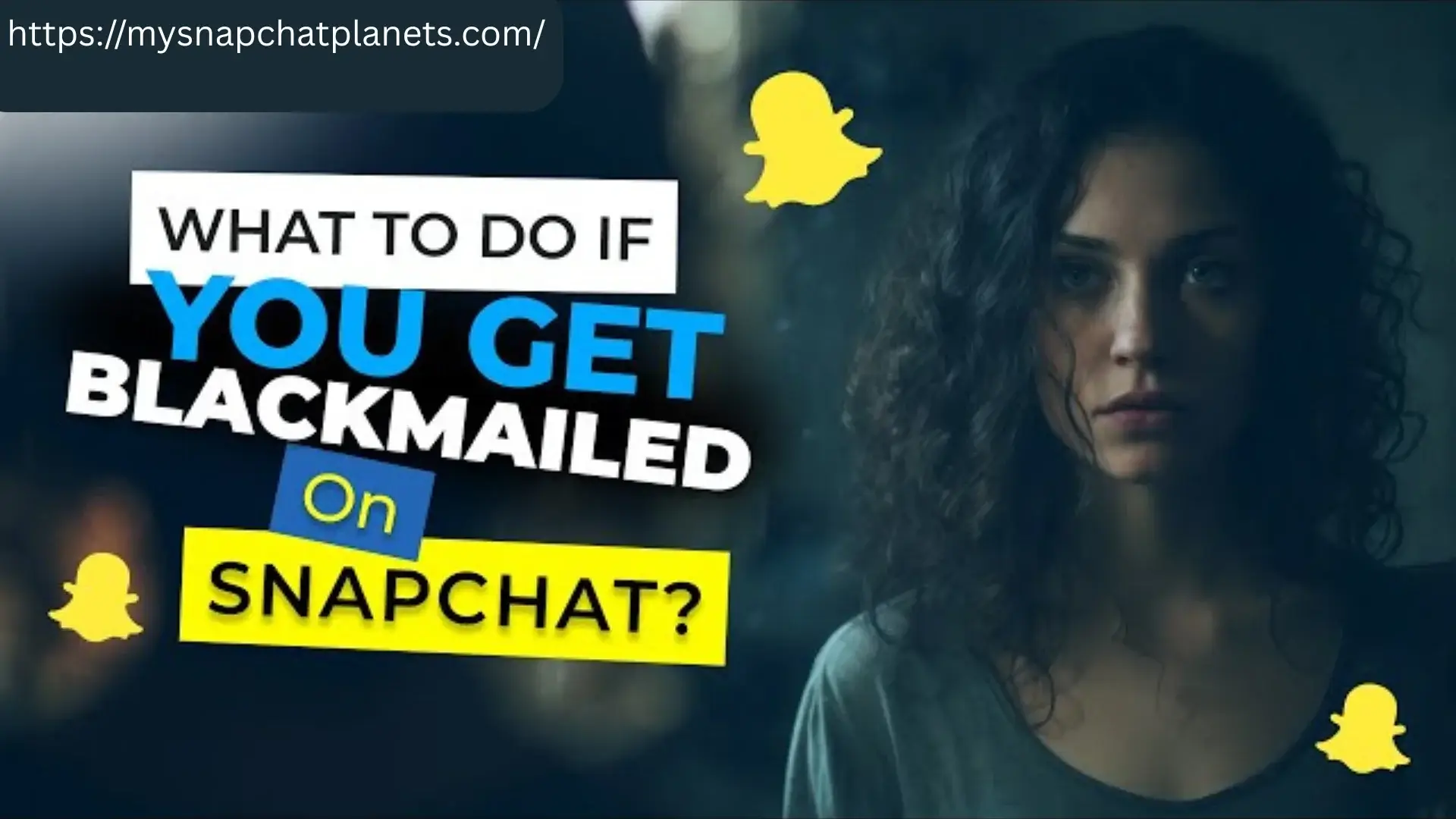I’m Being Blackmailed On Snapchat- What To Do?

In today’s digital world, platforms like Snapchat make sharing quick and easy. But with that convenience comes risk. Snapchat blackmail is on the rise. Scammers often use the app to trick, trap, and threaten users for money or private content.
As of late 2024, Snapchat has over 800 million monthly active users. It’s one of the world’s top social platforms. But its fast, disappearing content makes it a hotspot for cybercriminals.
If someone is blackmailing you on Snapchat, act fast. It may feel overwhelming, but you’re not powerless.
You can report the blackmailer, secure your account, and take legal steps to stop the threats. This guide shows you exactly what to do step by step.
What Should I Do First If I’m Being Extorted on Snapchat?
If someone is blackmailing you on Snapchat, stay calm. Fear and panic are natural—but don’t let them guide your next step. Do not respond to threats or demands. Trying to reason with the blackmailer or pay them will not solve the problem. In most cases, it will only invite more threats.
Your first move should be to collect and save evidence. Take screenshots of messages, usernames, profile pictures, and anything else tied to the threat. If the content disappears, use another device to record your screen.
Preserving this evidence is critical. It strengthens your case, helps Snapchat investigate faster, and gives law enforcement something solid to work with.
Do Not Respond to Threats
If someone is blackmailing you on Snapchat, do not reply to their messages. It may feel hard, but staying silent is the best thing you can do.
Here’s why:
- They want a reaction. If you reply, they know you’re scared. That gives them more power.
- They might trick you. If you talk to them, they may get more personal info. That helps them control you even more.
Stay calm. Stay silent.
Don’t argue or explain anything. Block them and focus on what you need to do next. By not replying, you take away their control.
Preserve Evidence
Save everything the blackmailer sends you. This helps you report them and prove what happened.
Here’s what to do:
- Take screenshots. Save every message, snap, or threat. Make sure the screenshot shows the time and username.
- Don’t delete anything. Even if it’s upsetting, keep every message. You may need it later.
- Record voice chats. If they threaten you in a call, record it on another phone (only if it’s legal where you live). Ask a trusted friend to help.
Screenshots may also alert the blackmailer. That alone can sometimes scare them off.
Do Not Pay or Comply
It might feel easier to pay the blackmailer to make it stop. But don’t do it.
Here’s why:
- Paying won’t stop them. They might ask for more money or find new ways to scare you.
- It shows weakness. If you give in once, they know they can control you.
- It supports a crime. Blackmail is illegal. Giving them money helps them keep breaking the law.
The best way to protect yourself is to stay strong. Don’t respond. Don’t pay. Focus on gathering proof and getting help.
Block the User
After you stop responding, block the blackmailer right away.
Here’s why it matters:
- They can’t contact you again. Blocking removes the threat from your Snapchat account.
- It limits their access. They can’t view your snaps or stories anymore.
- It sends a message. You’re not afraid. You won’t let them control or scare you.
If you’re connected to other apps, block them there, too.
Blackmailers often push again and again to get what they want. Blocking cuts off their power and helps protect your peace.
Report to Snapchat
Snapchat has tools to deal with blackmail and abuse. Reporting the blackmailer helps Snapchat take action. It also protects other users from falling into the same trap.
Here’s what to do:
- Save Proof First: Take screenshots of all messages, threats, and the user’s profile.
- Go to Their Profile: Tap the three dots in the top-right corner.
- Choose “Report”: Follow the steps. Select the reason that matches your case—like blackmail or threats.
- Add Details: Clearly explain what happened. Include any evidence you saved.
Once reported, Snapchat’s safety team can review the case and take action, such as banning the user.
Contact Law Enforcement
Blackmail is a crime. If someone is threatening you on Snapchat, don’t hesitate to contact the police.
Law enforcement officers know how to handle cybercrime. Even if you feel lost, they can guide you and help keep you safe.
Here’s when you should go to the police:
- If They Threaten to Hurt You: Any threat of violence—toward you, your family, or anyone you know—must be reported right away. That’s a serious crime in most places.
- If They Plan to Share Private Photos: If someone threatens to post nude images or any intimate content without your permission, that’s illegal. It’s a type of cybersex abuse and must be reported.
- If You Feel Unsafe: Even if the threats are subtle, but you feel scared or harassed, reach out. The police can offer protection and tell you what steps to take next.
You have every right to feel safe. Don’t try to handle this alone. Report it, and let the law help you.
Seek Legal Advice
If the situation feels serious or confusing, talk to a lawyer. Legal advice can give you clarity, protection, and confidence.
Hiring a lawyer might sound expensive—but you have options. Many areas offer free or low-cost legal help. Start by contacting your local bar association or a legal aid organization for support.
Here’s when legal help can really make a difference:
- To Understand Your Rights: A lawyer can explain what the blackmailer is doing wrong and what you can do to fight back legally.
- To Build a Case: If you want to press charges, a lawyer can help you collect evidence, file a report, and even represent you in court.
- To Feel More in Control: A legal expert can guide you step by step. This support can bring peace of mind during a stressful time.
You don’t have to figure this out on your own. A lawyer can help you protect yourself and take more decisive action.
Reach Out for Support
Being blackmailed on Snapchat can feel scary, isolating, and overwhelming. But you don’t have to face it alone.
Tell someone you trust—whether it’s a friend, family member, school counselor, or therapist. Just saying, “I’m being blackmailed on Snapchat,” can be a decisive first step toward healing and getting help.
Keeping everything inside will only increase stress. The people who care about you can listen, support you emotionally, and help you make smart decisions.
You can also contact a mental health hotline or support organization. Talking to someone trained to help can calm your nerves and remind you that you’re not alone.
Asking for help doesn’t make you weak—it shows strength. Reaching out means you’re taking control.
Conclusion
Online blackmail on Snapchat is more common than most people think. Every day, scammers target innocent users through sextortion, romance scams, and identity theft.
The best way to protect yourself is to stay cautious. Avoid fake profiles, and never share personal or sensitive content with strangers online.
If you’re already a victim, don’t stay silent. Take action, report the blackmailer, and seek help right away. You’re not alone—and there are people and tools ready to support you.
